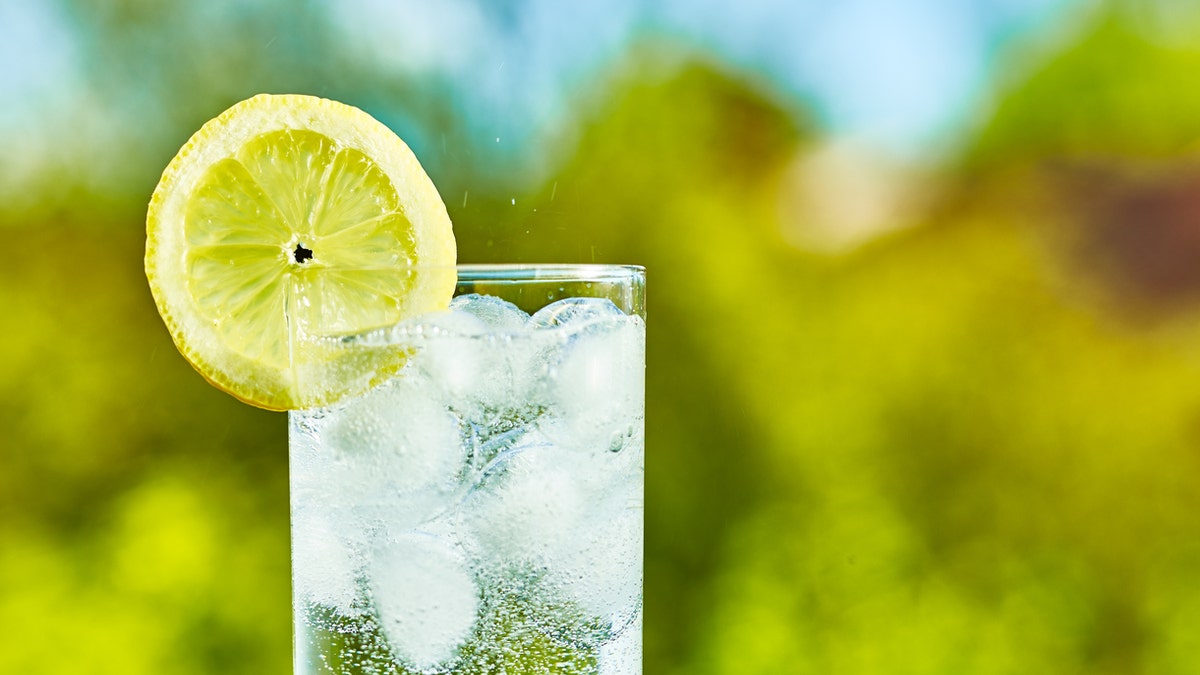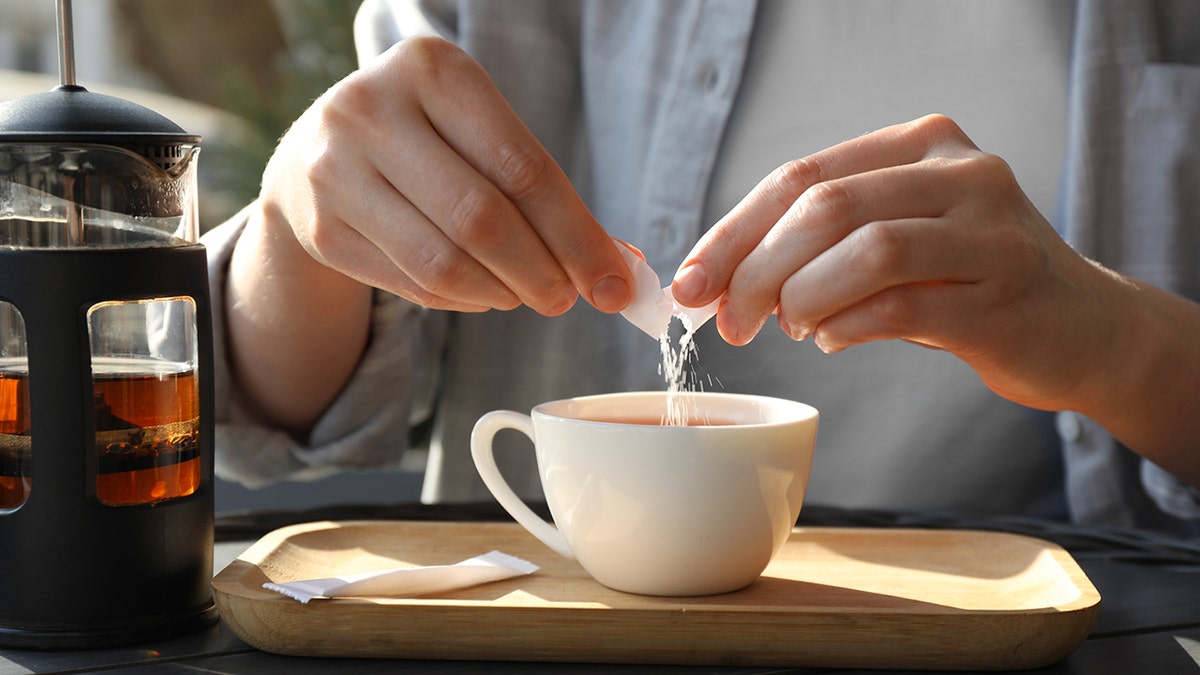NEWYou can now listen to Fox News articles!
Your favorite diet soda could have a detrimental effect on your cognitive health, a new study suggests.
In a Brazilian study published in the journal Neurology, participants who consumed the highest amount of artificial sweeteners were found to have “significantly faster declines” in thinking and memory skills.
Researchers determined that the highest-consuming group lost about 1.6 years in extra brain aging, with a 62% faster decline.
SUGAR IN DRINKS LINKED TO HIGHER DIABETES RISK THAN THAT IN FOOD, NEW RESEARCH FINDS
The groups at highest risk were younger adults under 60 and people with diabetes. Those older than 60 did not appear to be affected.
In the study, researchers tracked 12,772 adults averaging 52 years old for an eight-year period. The participants filled out questionnaires about what they ate and drank.

In a Brazilian study published in the journal Neurology, participants who consumed the highest amount of artificial sweeteners were found to have “significantly faster declines” in thinking and memory skills. (iStock)
The researchers focused on the consumption of seven artificial sweeteners found in soda, energy drinks, flavored water, yogurt and low-calorie desserts.
The specific sweeteners included in the study were aspartame, saccharin, acesulfame-K, erythritol, xylitol, sorbitol and tagatose, according to the study’s press release.
Among those who consumed the sweeteners, the highest group had an average of 191 milligrams per day, while the lowest group consumed an average of 20 milligrams.
EXPERTS SAY QUITTING DIET COKE CAN IMPROVE HEART HEALTH AND GUT BALANCE
The groups also completed cognitive tests at various points throughout the study to assess memory, language and thinking skills.
All of the sweeteners except tagatose were associated with a faster decline in cognition, especially memory, the researchers found.

The specific sweeteners included in the study were aspartame, saccharin, acesulfame-K, erythritol, xylitol, sorbitol and tagatose. (iStock)
“People often believe artificial sweeteners are a safer alternative to sugar, but our results suggest they may not be harmless, particularly when consumed frequently and starting in midlife,” study author Claudia Kimie Suemoto, M.D., Ph.D., of the University of São Paulo in Brazil, told Fox News Digital.
“While more research is needed, our findings highlight the importance of looking carefully at what we use to replace sugar in our diets. The best message for the public is to reduce both added sugars and artificial sweeteners, and whenever possible, choose natural options and focus on a balanced diet rich in whole foods.”
“Our results suggest that midlife exposure to sweeteners may be particularly harmful.”
The researchers had expected the association to be more evident in older adults, since they are at higher risk of dementia and cognitive impairment.
“Instead, our results suggest that midlife exposure to sweeteners may be particularly harmful, which is important because midlife is a critical period for setting the trajectory of brain health,” Suemoto said.

The groups at highest risk were younger adults under 60 and people with diabetes. Those older than 60 did not appear to be affected. (iStock)
“Cognitive decline and dementia are thought to begin developing decades before symptoms become noticeable, so exposures during midlife may accelerate these processes and have long-term consequences.”
Based on these findings, the researchers recommend that the safest approach is to reduce artificial sweetener consumption as much as possible, ideally avoiding them altogether.
EARLY ALZHEIMER’S SIGNS DETECTED IN 3 MINUTES WITH NEW BRAINWAVE TEST
“Instead of relying on artificial sweeteners, people can try other ways to add flavor and sweetness, such as using fruits, honey or maple syrup in moderation,” Suemoto advised. “This not only avoids the potential risks we observed, but also encourages a more natural and balanced diet.”
Family physician Dr. Brintha Vasagar, who is based in Milwaukee, Wisconsin, was not involved in the study but shared her reaction to the findings.

Instead of diet soda, experts recommend opting for water, which can be infused with cucumber, mint or fruit for added flavor. (iStock)
“For some people, the benefit of avoiding sugars in the diet will outweigh the risks of artificial sugars, and your family medicine physician can help you determine what is best for you,” she told Fox News Digital.
“For most people, however, natural sugars are the safest option. Artificial sugars can change your perception of sweet, leading you to consume more sugars to feel the same satisfaction.”
“While there is a link between artificial sweeteners and brain health, we do not have data that shows causation.”
Most experts recommend consuming less than one serving a day, ideally for a short period of time, or only once every few weeks, she said.
Instead of diet soda, Vasagar recommends opting for water, which can be infused with cucumber, mint or fruit for added flavor. “Fresh fruits, vegetables, nuts and cheese are all healthy options for snacks without added sugars,” she said.
DRINKING SPECIFIC VEGETABLE JUICE COULD REDUCE OLDER ADULTS’ BLOOD PRESSURE, STUDY FINDS
For those who have diabetes and use artificial sweeteners, she recommends seeing a physician for help creating an individual plan.
“Some artificial sweeteners can actually raise blood sugar,” she pointed out. “In general, even people with diabetes should strive for moderation in using artificial sweeteners.”
Limitations and further research
The study had several limitations, the researchers acknowledged.
“The dietary assessment was made only at the study baseline,” Suemoto told Fox News Digital. “We adjusted the statistical analyses for several factors, but residual confounding may still be present, which is common when we are trying to control other dietary behaviors and health conditions.”
CLICK HERE TO GET THE FOX NEWS APP
The study also did not include all artificial sweeteners, and the self-reported dietary data may have been limited by the participants’ ability to recall exactly what they consumed.
More research is needed in other groups and using other tools, Suemoto said, such as neuroimaging to see whether specific brain lesions are linked to sweetener use.

The researchers had expected the association to be more evident in older adults, since they are at higher risk of dementia and cognitive impairment. (iStock)
Vasagar agreed that more studies are essential to determining whether artificial sugars are the cause of dementia and memory loss.
“It’s important to note that while there is a link between artificial sweeteners and brain health, we do not have data that shows causation,” she reiterated.
CLICK HERE TO SIGN UP FOR OUR HEALTH NEWSLETTER
The Calorie Control Council provided the below statement to Fox News Digital.
“Low/no-calorie sweeteners are among the most scrutinized ingredients and consistently have been confirmed as safe for decades by global health authorities, including the U.S. Food and Drug Administration (FDA) and the European Food Safety Authority (EFSA),” said Carla Saunders, president of the CCC.

Researchers determined that the highest-consuming group lost about 1.6 years in extra brain aging, with a 62% faster decline. (iStock)
“This study has notable limitations, including reliance on self-reported dietary data collected only at baseline. While the authors admit finding no causal evidence, it risks misleading the millions with diabetes who rely on low/no-calorie sweeteners as recommended by the American Diabetes Association and other global health experts.”
For more Health articles, visit www.foxnews.com/health
The study was supported by the Brazilian Ministry of Health, the Ministry of Science, Technology, and Innovation, and the National Council for Scientific and Technological Development.








